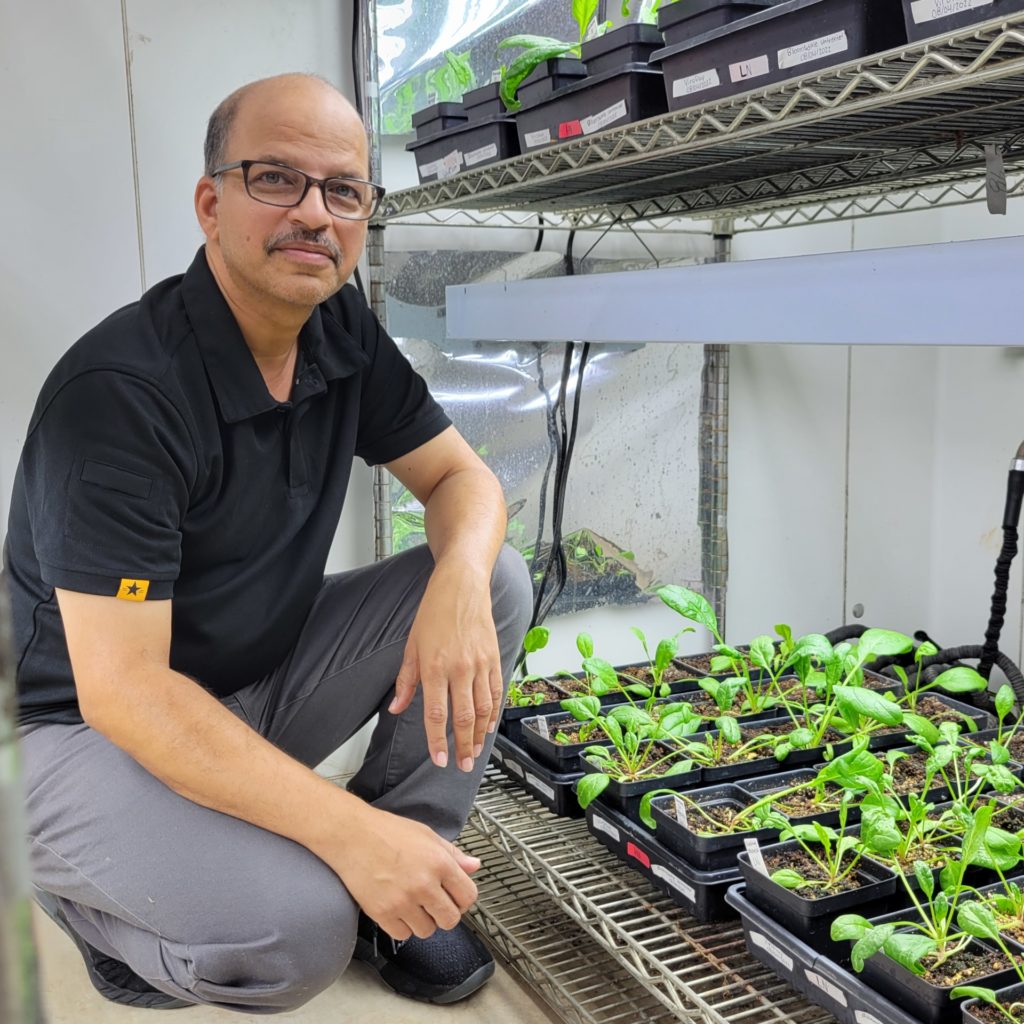College Station, Texas, USA
September 22, 2022
Despite the greatly increasing consumer interest for organic spinach in the U.S. and worldwide, production is not keeping pace with demand.

Vijay Joshi, Ph.D., will lead research on a three-year project to improve organic spinach productivity. (Texas A&M AgriLife photo)
To help overcome some of the challenges facing organic spinach production, Vijay Joshi, Ph.D., a Texas A&M AgriLife Research plant systems physiologist at the Texas A&M AgriLife Research and Extension Center in Uvalde, was recently awarded a grant from the U.S. Department of Agriculture’s National Institute of Food and Agriculture, NIFA.
Joshi, also an assistant professor in the Texas A&M Department of Horticultural Sciences, will lead the three-year research project, titled “Systems Approach to Maximize Organic Spinach Productivity.” The project is funded under NIFA’s Organic Agriculture Research and Extension Initiative. An initial first-year funding of more than $450,000 was provided for the project, with total funding to be about $1.5 million.
Project collaborators include Ainong Shi, Ph.D., associate professor in the Department of Horticulture at University of Arkansas; Micaela Colley, program director for the Organic Seed Alliance, Port Townsend, Washington; and Alice Formiga, a professor of practice in the Oregon State University Department of Horticulture.
Addressing problems of low-input organic spinach production
Spinach, the most popular nutrient-rich staple vegetable, has notoriously high pesticide residues when grown conventionally. Organic production eliminates the use of inorganic fertilizers and pesticides, but most spinach varieties used for low-input organic production are poorly adapted and cause substantial yield gaps as compared to conventional farming.
“Organic spinach growers need varieties adapted to growing conditions and qualities demanded by consumers,” Joshi said.
Nutrient acquisition, abiotic stresses like extreme temperature, nutritional attributes and limited seed availability are critical challenges in organic spinach production. To help with these challenges, the project will expand knowledge of potentially beneficial microbes.
“This project will include developing varieties with an improved neutracitical profile and nitrogen-use efficiency,” Joshi said. “It will also seek to improve our understanding of the role of microbes in the soil and spinach roots and leaves, adapted exclusively to low-input organic production.”
He said another challenge is how to enhance seed production and availability.
“We will create a breeding model to develop varieties with higher organic seed productivity,” Joshi said. “We will also be investigating the use of natural variation in spinach germplasm. This will be accomplished through genome-wide association analysis and genomic prediction.”
Project expectations
Joshi said the results of this project enhance efforts develop organic spinach varieties to enhance productivity and quality.
“A productive research project is one that would ensure high-quality, nutritionally beneficial and safe food for society produced through sustainable agriculture,” Joshi said. “This new research will certainly be in keeping with that goal.”
Project results will be disseminated nationally through eOrganic, Organic Seed Alliance and other university-initiated outreach programs, agricultural publications and field days.